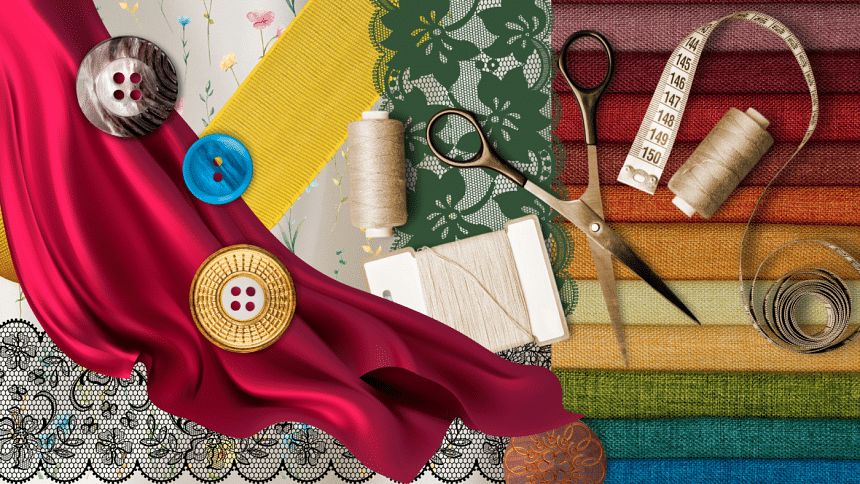The joy of designing your own dresses

White is the most annoying of colours.
Arriving at such a conclusion about the colour that rules my closet was unexpected. But after spending hours walking through the alleyways of a market with similar shops, it's hard to keep patience. I had been making circles in Chandni Chawk to buy some fabric for a salwar to match a white kameez. But every time I placed the fabrics beside my kameez, each of them was either too white, too yellow, too thin, or too expensive.
While some of you can relate to my frustration of matching white with white, others can ask, why go through this ordeal in the first place? Why take the convoluted route through the Chandni Chawk backstreets when I can just swipe a card in a store or better yet, make a few clicks on the internet?
It does cost more to customise a dress than to grab one that has been mass-produced. So, while the rationalist in me doesn't approve of such endeavours, there's another part that gets slightly dazed at the sight of fabric rolls neatly lined from the top to the bottom of a wall.
When the salesman unfurls the nature print organza before my eyes, my heart is divided between the yellow daisies on black and the lavender blossoms on white. It hurts to leave any of them behind but my budget makes me do cruel things.
While I'm running errands to collect materials, it's not only the feminine floral prints that allure. One of my favourite places to shop is the men's fabric store. I consider them the haven of solid pastel colours. Though fabrics in men's shops tend to be on the pricier side, their texture and durability happen to be much better than the ones made for women.
The most telling of all fabrics is definitely the ones repurposed from old sarees. One of my friends wore an anarkali made from her mom's red jamdani for Baishakh when we were in the third grade. The memory still remains even now, when I'm at the dusk of my undergrad. That's how immortal a kameez reborn from a saree can be.
The inspiration for a design can be a revelation, sometimes, literally from the sky. One day, you look at the sky and the fluff of gliding autumn clouds makes you want to wear the sky. You go to a boutique house and ask if they can embroider clouds on a sky-blue fabric. The possibilities of customisation are beautiful – tea cups, cats, books – it's a way of telling someone what you care about without saying a word.
From the dreamy desire to wear the sky to the energetic expedition of making it a reality – it's a fun little project. Finding the right shade of white lace to line my white kameez is like fitting the last pieces of a jigsaw puzzle. The difference is that I can fit this puzzle around my body and walk into the world with contentment. Designing the dress, I want is a preparation for dressing the way I want. I hope more and more of us can do that.
Noushin Nuri is an early bird fighting the world to maintain her sleep schedule. Reach her at [email protected]

 For all latest news, follow The Daily Star's Google News channel.
For all latest news, follow The Daily Star's Google News channel. 








Comments